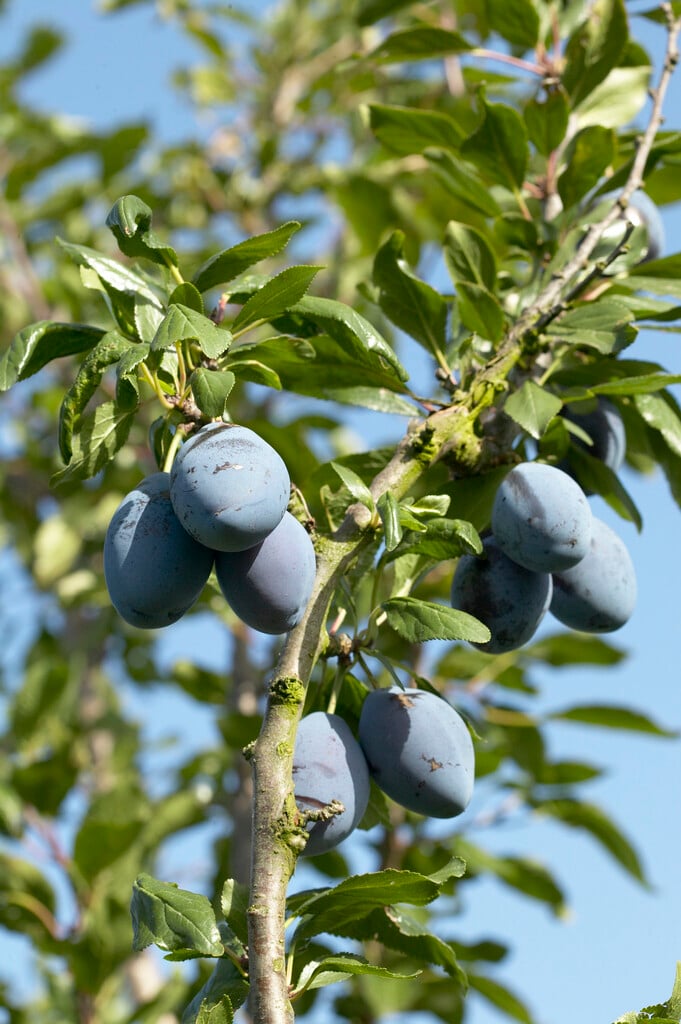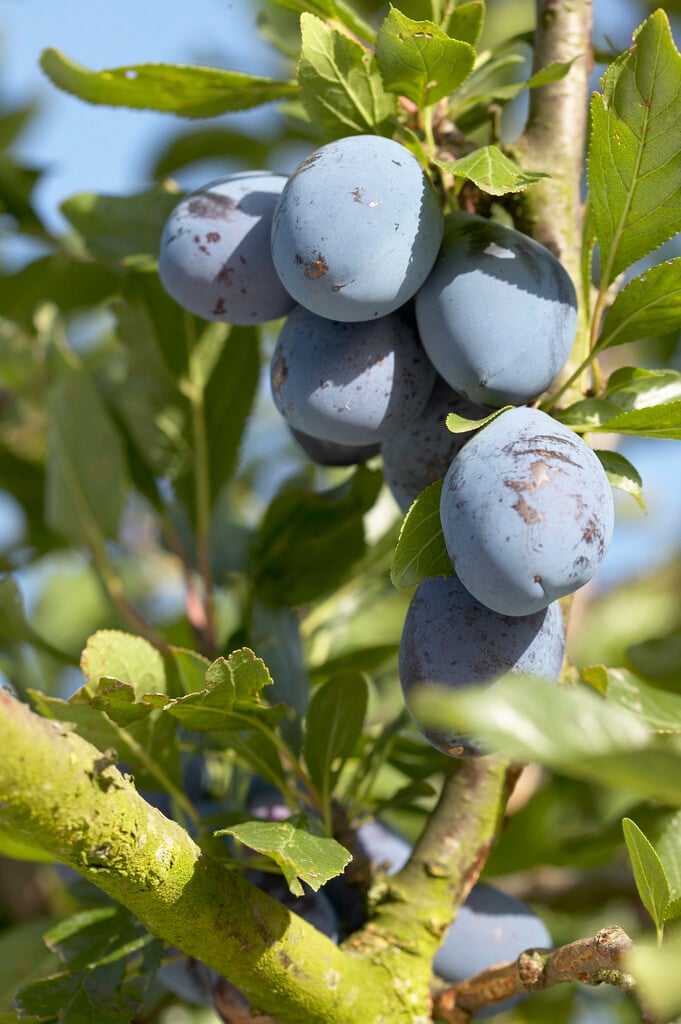Prunus domestica 'President' (C)
plum 'President'
A small, deciduous tree with green foliage and white flowers which produces large, firm, stone-free dark purple-blue fruits. A 'moyer' variety of plum which are known for their reliability and excellent flavour. The variety ripens a little later than most moyer plums in mid-September and is not self-fertile so requires another variety of plum nearby for pollination
Size
Ultimate height
2.5–4 metresTime to ultimate height
5–10 yearsUltimate spread
2.5–4 metresGrowing conditions
Moisture
Moist but well–drained, Well–drainedpH
Acid, NeutralColour & scent
| Stem | Flower | Foliage | Fruit | |
| Spring | White | Green | ||
|---|---|---|---|---|
| Summer | Green | Purple Blue | ||
| Autumn | Purple Blue | |||
| Winter |
Position
- Full sun
Aspect
South–facing or West–facing
Exposure
Sheltered Hardiness
H5Botanical details
- Family
- Rosaceae
- Native to GB / Ireland
- No
- Foliage
- Deciduous
- Habit
- Bushy
- Genus
Prunus can be deciduous or evergreen trees or shrubs with showy flowers in spring, and often good autumn foliage colour. Some have edible fruit in autumn, and a few species have ornamental bark
- Name status
Accepted
How to grow
Cultivation
Grow in a moist, but well-drained soil in full sun. Suitable for all training forms, including fan-trained. Keep a weed-free area of at least 60cm radius around trunk. Thin fruit if necessary. Irrigate in dry periods. Flowers late so should escape spring frosts. See plum cultivation for further advice
Propagation
Propagate by chip budding or grafting, although softwood cuttings in early summer with bottom heat can be successful
Suggested planting locations and garden types
- Cottage and informal garden
- Wildlife gardens
- City and courtyard gardens
- Edible fruit
- Wall side borders
Pruning
Regular pruning required according to tree form. See pruning plums or prune established fans
Pests
May be susceptible to plum aphid, caterpillars, fruit tree red spider mite, brown scale, plum moth and bullfinches
Diseases
May be susceptible to peach leaf curl, silver leaf, bacterial canker, blossom wilt and honey fungus
Get involved
The Royal Horticultural Society is the UK’s leading gardening charity. We aim to enrich everyone’s life through plants, and make the UK a greener and more beautiful place.

